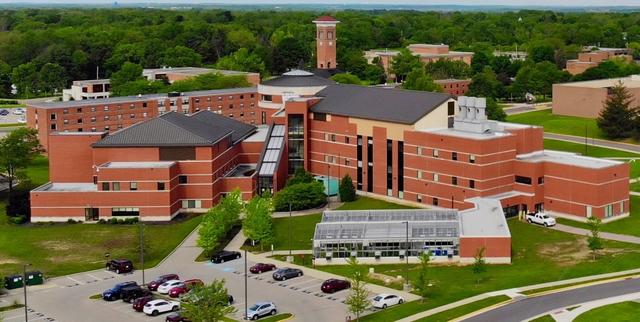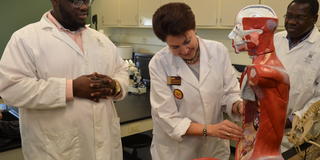

Department of Agricultural and Life Sciences (DALS)
Description
Welcome to the Department of Agricultural and Life Sciences (DALS)
DALS offers degree programs in 4 areas of Basic and Applied Science; Biology, Chemistry, Exercise Science, and Sustainable Agriculture, as well as support courses in Physics. Our department also offers minors in biology, chemistry, exercise science, forensic science, and nutrition. As the largest department in the College of Engineering, Science, Technology, and Agriculture we offer a number of student clubs, activities, and experiential learning. We look forward to working with you.
Dr. Kathleen Carter, Interim Chair.

Department of Agricultural and Life Sciences is housed in the Joshua I. Smith Center for Education and Natural Sciences. (photo from GoogleMaps)
Exceptional Programs
-
Biology majors study the beauty and complexity of natural environments. You will hone your critical thinking and problem-solving skills through hands-on research and discover the origins of our world in courses, such as evolution and molecular genetics. You can also transform the future of our world by delving into fields like bioinformatics and environmental plant physiology.
-
In concert with the mission of the University, Chemistry faculty foster the professional development of students through academic excellence, and provide educational opportunities to students to be competitive in a technological society.
-
In concert with the mission of the University, Exercise Science faculty foster the professional development of students through academic excellence, and provide educational opportunities to students to be competitive in a technological society.
-
Sustainable Agriculture is an interdisciplinary major and overlaps some faculty and coursework with Agribusiness, Biology, Chemistry, Geography, Physics, Manufacturing Engineering, and Water Resources Management.
Talk to an Advisor
Take the Next Step
Contact Us
Address:
Central State University
John W. Garland College of Engineering, Science, Technology, and Agriculture
Department of Agricultural and Life Sciences
1400 Brush Row Road, PO Box 1004, Wilberforce, Ohio 45384
Department Administration:
Charlene Edwards
Email Address: cedwards2@centralstate.edu
Office Phone Number: +1 (937) 376-6280
For further assistance or specific department contacts, please visit our faculty and staff webpage at https://www.centralstate.edu/academics/science/DALS/faculty.